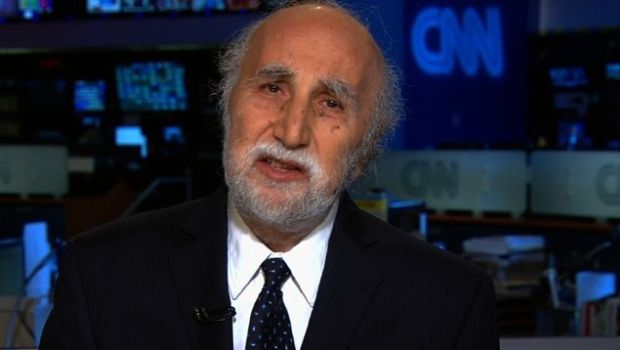London, Asharq Al-Awsat—Lebanese-born Middle East scholar and commentator Fouad Ajami passed away on Sunday, aged 68, after losing a protracted battle with cancer. Ajami was one of the most prominent and influential Middle East scholars in the world, helping rally support for the US invasion of Iraq in 2003.
Fouad Ajami was born in Arnoun, Lebanon, on September 18, 1945. A Shi’ite Muslim, he emigrated to the US in 1963. He initially attended Eastern Oregon College, and later earned a PhD at the University of Washington. Ajami taught political science at Princeton and was named Director of Middle East studies at the School of Advanced International Studies of John Hopkins University in 1980. He joined the Hoover Institution as a senior fellow in 2011, later serving as co-chair of the Hoover Institution’s Working Group on Islamism and the International Order.
Hoover Institute Director John Raisian praised Ajami’s role in Middle East scholarship on Sunday, saying: “Fouad is truly one of the most brilliant Middle East scholars of our time. His Hoover Institution family will forever miss his superb scholarship, quick wit and gentle spirit.”
Asharq Al-Awsat spoke with a number of Ajami’s colleagues and former students.
Emile Hokayem, a senior fellow at the Institute for International Strategic Studies (IISS), described Ajami as an “unrivaled” scholar of the Middle East.
“Professor Ajami is a complex person. Someone who in a way had the best assessment of the decay of Arab societies and Arab political thinking but he combined that assessment with policy recommendations that were very optimistic, that almost obscured the previous pessimistic assessment.
“In his assessments, he was unrivaled. He was tough with Arabs the way few Arabs dared to be. There was little self-pity. There was a hard look at what ails Arab societies. That is his greatest contribution,” he added.
Hokayem acknowledged that Ajami’s name has become inextricably linked with the 2003 Iraq war, but said that his contribution to the world of Middle Eastern scholarship went far beyond this.
“It is so unfair to restrict to Ajami’s contribution to the Iraq war alone. He is so much more than that. Iraq was a tragic mistake, but even when he was wrong, his assessments and his arguments were never easy to dismiss.”
“His greatest contribution was helping us understand the Arab predicament in a broader perspective. He talked about the region in broader terms. It wasn’t just about Israel or the West,” he said.
Hisham Melhem, a Lebanese journalist and political commentator, told Asharq Al-Awsat that Ajami’s legacy will live on after his death.
“He had tremendous insights about what ails the Arab world. You can agree with him or disagree with him about his solutions or proscriptions, but in his insights into the complexity of the Arab world, he was very honest in pointing out the contradictions. Time and again, he captured that dilemma of modern day Arabs and their tormented present and glorious past, their dreams of a better future always undermined.
“He told a tale of yearning and sorrow and frustration and he captured it in a beautiful and lyrical poetic prose. Other people could write a piece or article or book, but they will not give you the flair, the pulse, the poetry that Fouad gave you.
“We had political differences, but whether you agreed with him or not, you read him.”
Ajami authored a number of books on the Arab world and Middle East, including The Arab Predicament; The Vanished Imam: Musa al Sadr and the Shia of Lebanon; Beirut: City of Regrets; The Dream Palace of the Arabs; and The Foreigner’s Gift: The Americans, the Arabs, and the Iraqis in Iraq. His last book, The Syrian Rebellion, was published in 2012.
He received numerous awards, including the Benjamin Franklin Award for public service (2011), the Eric Breindel Award for Excellence in Opinion Journalism (2011), the Bradley Prize (2006), the National Humanities Medal (2006), and the MacArthur Fellows Award (1982).

